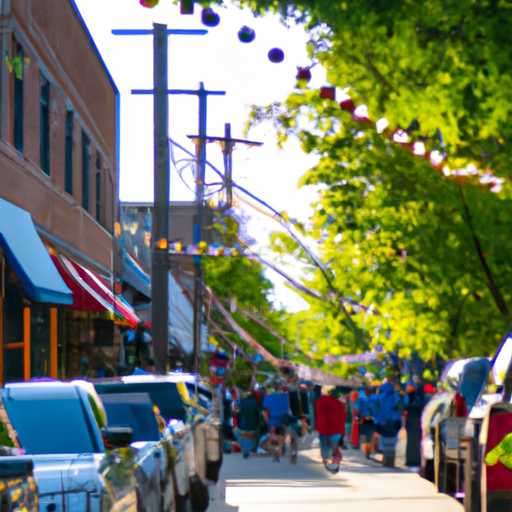Mastering the Art of Local SEO with Neighborhood Keywords
Discover essential tips for optimizing local SEO using neighborhood keywords to drive traffic and boost engagement in your area.
Introduction to Local SEO
 In today's digital age, local SEO has become a crucial strategy for businesses looking to connect with their community. If you're wondering what local SEO is, it's simply the practice of optimizing your online presence to attract more business from relevant local searches. This is especially important for small businesses that rely on local customers.
But how can you make the most of local SEO? One of the most effective techniques is by focusing on neighborhood keywords that can help you target specific areas within your market. In this article, we'll explore what neighborhood keywords are, why they matter, and how you can implement them into your local SEO strategy.
In today's digital age, local SEO has become a crucial strategy for businesses looking to connect with their community. If you're wondering what local SEO is, it's simply the practice of optimizing your online presence to attract more business from relevant local searches. This is especially important for small businesses that rely on local customers.
But how can you make the most of local SEO? One of the most effective techniques is by focusing on neighborhood keywords that can help you target specific areas within your market. In this article, we'll explore what neighborhood keywords are, why they matter, and how you can implement them into your local SEO strategy.
What Are Neighborhood Keywords?
Neighborhood keywords are specific search terms that include the names of neighborhoods, towns, or even street names in your area. For example, if you're a coffee shop in Brooklyn, you might use keywords like "best coffee in Williamsburg" or "Brooklyn artisanal coffee shop". These keywords not only help with SEO but also resonate with your community.Why Neighborhood Keywords Matter
1. Improved Relevancy: Utilizing neighborhood keywords makes your content more relevant to local searchers. Google prioritizes local search results, so including specific locations increases your chances of appearing in search results.
2. Targeted Audience: By focusing on neighborhood keywords, you can attract a more targeted audience that is ready to engage with your business. People generally type in their specific locations when searching for services or products.
3. Increased Foot Traffic: If your website shows up in neighborhood-specific searches, you’re more likely to bring local customers straight to your door. This means more sales and higher visibility in your community.
4. Enhanced Content Marketing: Incorporating neighborhood keywords into your blog posts or social media content can improve your visibility and engagement rates. It gives you the opportunity to share unique stories or promotions that are relevant to your specific area.
How to Implement Neighborhood Keywords
Now that you know why neighborhood keywords are essential, let's dive into how you can effectively implement them into your local SEO strategy.1. Keyword Research: Start by researching which neighborhood keywords are most relevant to your business. Use tools like Google Keyword Planner, Ahrefs, or SEMrush to find popular terms local customers are using.
2. Optimize Your Website: Once you have a list of neighborhood keywords, it's time to optimize your website. Include these keywords in your page titles, meta descriptions, headers, and throughout your content naturally.
3. Create Local Landing Pages: If your business serves multiple neighborhoods, consider creating dedicated landing pages for each area. This allows you to tailor your content and keywords to each locality, improving your chances of ranking for those specific terms.
4. Local Business Listings: Ensure your business is listed on local directories such as Google My Business, Yelp, and Bing Places. Make sure to mention your neighborhood in your business description to further enhance your local SEO efforts.
5. Engage with Local Community: Engage with your community both online and offline. Participate in local events, sponsor local activities, or join community groups on social media. Share content related to these events, incorporating local keywords to boost your presence.
Tips and Tricks for Success
1. Stay Updated with Trends: Local trends can change quickly, so keep an eye on what's happening in your area. Adjust your keywords and content accordingly to stay relevant.
2. Use Google Trends and Alerts: Set up Google Alerts for your neighborhood keywords. This way, you’ll stay informed about new trends or discussions related to your locality.
3. Leverage Social Media: Use neighborhood-specific hashtags on social media platforms to reach a broader local audience. Engage with users who mention your area in their posts.
4. Request Customer Reviews: Encourage your customers to leave reviews on local directories. Positive reviews can boost your visibility and reputation, making you more appealing to local searchers.
Conclusion
In conclusion, mastering local SEO through neighborhood keywords is an effective way to connect with your community and drive traffic to your business. By implementing these strategies, you can enhance your online presence, attract local customers, and ultimately, grow your business. Remember to keep your content fresh and relevant, and don't hesitate to get involved in your local community. Happy optimizing!
Boost Your SEO with Creative Backlink Strategies
Explore unique backlink strategies to enhance your SEO. Learn about innovative techniques and tips to improve your keyword ranking and online visibility.

Boost Your SEO with Creative Visual Content Strategies
Discover how creative visual content strategies can enhance your SEO, backlinks, and keyword strategies for better online visibility.

Boost Your SEO with Page Speed Optimization Tips
Discover effective strategies for optimizing page speed to enhance SEO performance, improve user experience, and elevate your online presence.